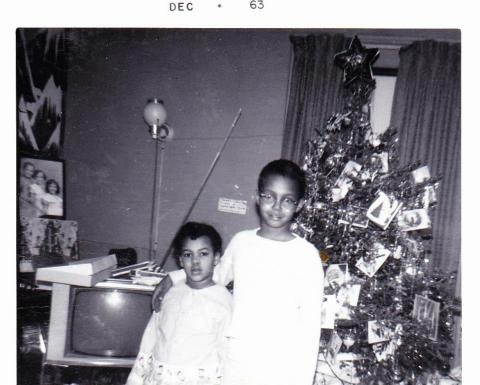 I had mixed, though mostly positive, feelings when I saw the 2011 movie, The Help. However, I was unabashedly thrilled to see Cicely Tyson as one of the older maids. I’ve been watching her for nearly 50 years.
I had mixed, though mostly positive, feelings when I saw the 2011 movie, The Help. However, I was unabashedly thrilled to see Cicely Tyson as one of the older maids. I’ve been watching her for nearly 50 years.
The first time I knew her by name was in the 1963 television series East Side, West Side. It was, as I vaguely recall, a gritty and realistic show, which starred George C. Scott (Emmy nominated) as social worker Neil Brock, and Tyson as the secretary Jane Foster. The series lasted only 26 episodes, but my recollection was that it was great having a black person, a black woman, no less, in a significant role that was in a drama, and she WASN’T a maid, or a caricature. Before Greg Morris on Mission: Impossible or Nichelle Nichols on Star Trek, there was Cicely Tyson.
Subsequently, I saw her in episodic TV shows. Her next big role was in her Oscar-nominated role in the movie Sounder (1972). Then she played the title character in the 1974 television movie The Autobiography of Miss Jane Pittman, the story of a woman born in slavery who lived long enough to be part of the civil rights movement. The film won nine Emmys, including two for Tyson.
Cicely was Emmy nominated for playing Kunta Kinte’s mother in Roots (1977), Coretta Scott King in King (1978) and the title educator in The Marva Collins Story (1982). She was nominated four additional times, winning for The Oldest Living Confederate Widow Tells All (1994).

She was married to jazz legend Miles Davis from 1981 until their divorce in 1988.
Cicely Tyson appeared on CBS Sunday Morning in April 2013. What I did not remember is that, before her acting career, she appeared as a model in Ebony magazine, though when I saw the images, they were oddly familiar to me. Her decision to model meant her mother didn’t speak to her for two years.
The new television piece was about her first acting on Broadway in 30 years, to appear in a stage version of The Trip to Bountiful, based on Horton Foote’s story. Her research included visiting Foote’s daughter and seeing the places that inspired the story.
She is actively involved in Cicely L. Tyson Community School of Performing and Fine Arts in East Orange, New Jersey.
There is some argument about Cicely Tyson’s age. The IMDB suggests that she turns 80 in December 2013, while the story, and Wikipedia, suggested she may be as old as 88. Regardless, she has been a beacon as an actress who only took roles she thought enhanced the portrayal of her people.






